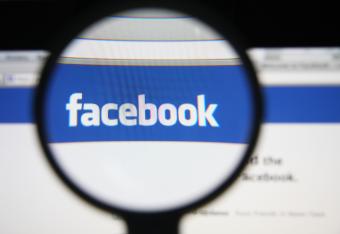
The idea of anonymous social media is stronger than ever. However, there's a debate over the pros and cons associated with using popular anonymous apps such as Whisper (250 million users) and Reddit (330 million users).
The Benefits of Anonymous Social Media
Proponents of these apps offer several reasons why they believe the technology is good.
Helps People in Need
According to The Economist, Whisper's owner, Michael Heyward contended that since users are not identified, troubled individuals can find help from a non-judgmental source through apps like Whisper. Another example includes popular app AfterSchool, which is focused on teenagers. The app allows teens to speak freely with others about emotional and everyday life concerns.
Protects User's Data
With the Cambridge Analytica scandal in 2018 and the new awareness of how much Facebook users lack privacy, many people are seeking to leave social media platforms to avoid security issues.
Encourages Meaningful Dialog
Along the same lines, proponents believe that meaningful dialog can push important issues to the forefront because a person can comment without fear of repercussion. These situations enable whistle-blowers to draw attention to bonafide issues that might otherwise be pushed aside.
Source for Breaking News
Some journalists have started using Whisper to report on the tech industry, and one of the goals of Whisper is to encourage its users to post news as it happens and promote popular media. In 2017, Whisper launched a new service that generates articles automatically from users' posts. Surprisingly, it is popular - even writers at news company Tronc use it.
Generates Unbiased Advice
Many people post life events on Facebook to share with family and friends, such as an upcoming wedding. However, some of those same people will turn to anonymous sites to ask for life advice when they feel uncomfortable sharing personal details with a friend.
Critics of Anonymous Social Media
People who oppose the concept of anonymous commenting see these apps as tools that perpetuate cyberbullying, slander, and other less-desirable behaviors. Critics reason if the restraints of societal rules are removed, condescending remarks and nasty behavior become more prevalent.
The Potential for Ruined Lives
Netscape co-founder, Marc Andreessen, is one of the leading critics of anonymous social sites. He called out the various investors and developers who are pumping money and effort into Whisper by voicing his opposition and saying people needed to decide if the systems are "ethical and legitimate." In his Twitter dialog, he lamented that many of these experiments are "designed to encourage negative behavior, tearing people down, [and] making fellow souls sad."
Slander and Abusive Posts
One of the most common criticisms of anonymous social media is how easily a user can post a defaming remark about an individual. This often puts the victim at the disadvantage of having to prove the statement false. If the abuser is anonymous, it makes it that much harder to stop them as well, although some people have been successful at removing their anonymity to press civil suits.
Anonymous Violence
Beyond the concern of cyberbullying and abusive posts, more serious concerns have arisen about some of these apps. For example, white supremacist groups use anonymous social media accounts to fuel violence such as in the 2017 Charlottesville riot. A lawsuit has been filed to reveal identities of those who have perpetrated violence. Anonymous social media can also lead to stalking and murder, such as in the case of Nicole Madison Lovell. The 13-year-old was killed by two, 18-year-old males she was communicating with anonymously.
Do You Have a Right to Be Anonymous?
While there are solid pros and cons to this debate, it's important to realize that anonymity is a hallmark of U.S. history. Common Sense, which played a crucial role in the American Revolution, was published anonymously by Thomas Paine, and The Federalist Papers were all written anonymously by James Madison, John Jay, and Alexander Hamilton. As social media becomes a larger presence in everyday life, it's likely this issue will continue to be debated online and in the courts.







